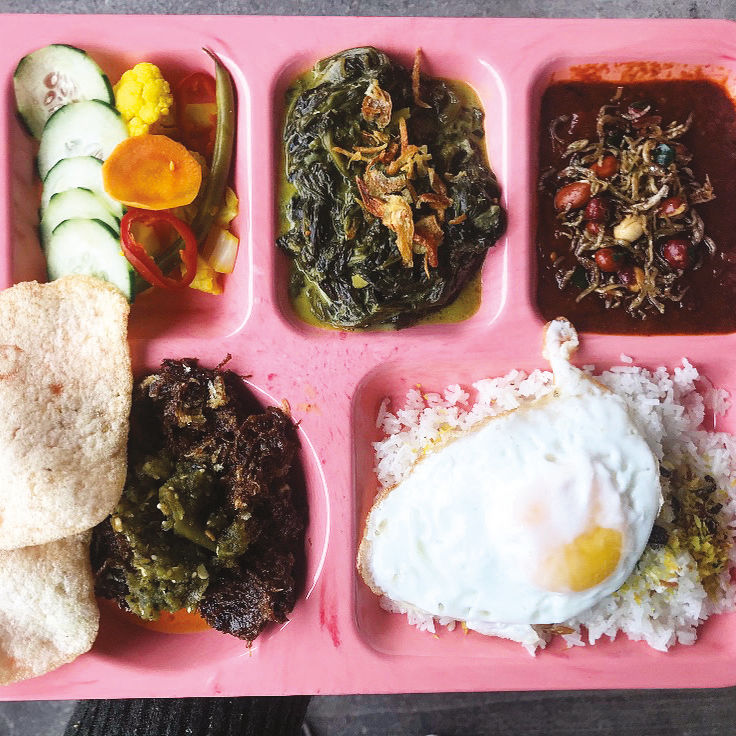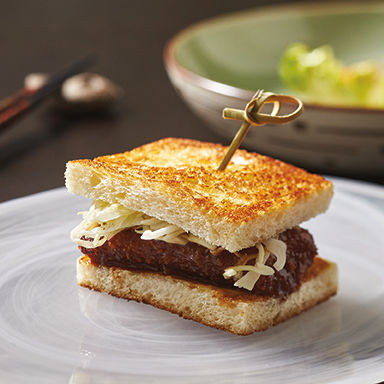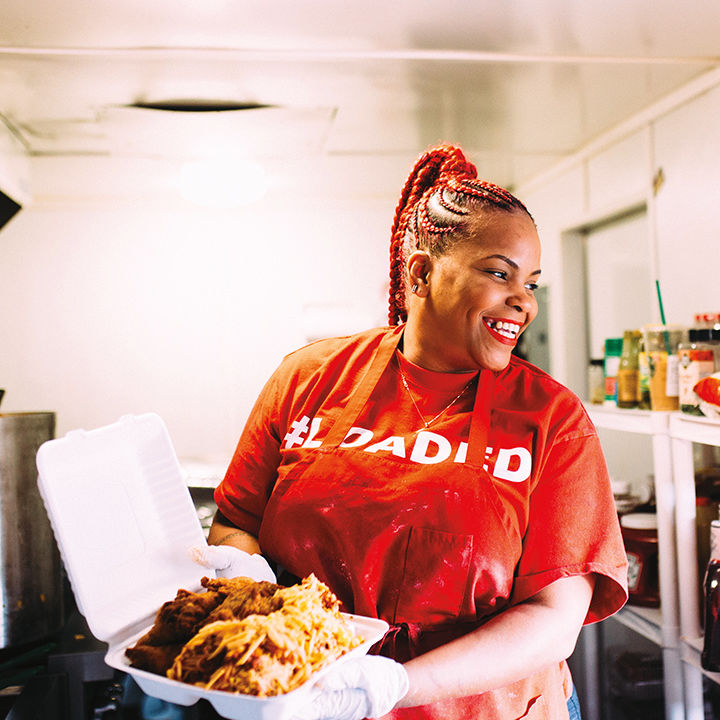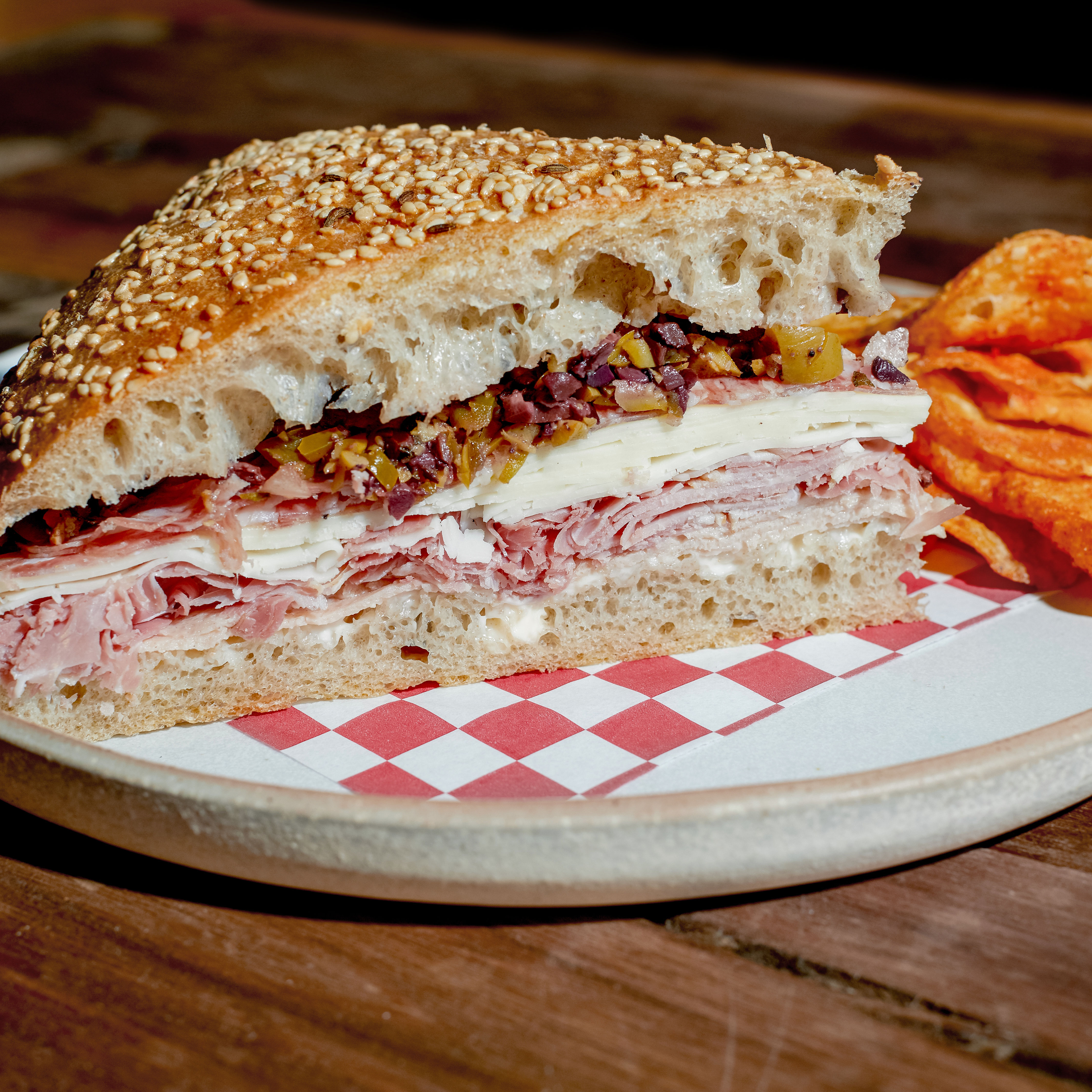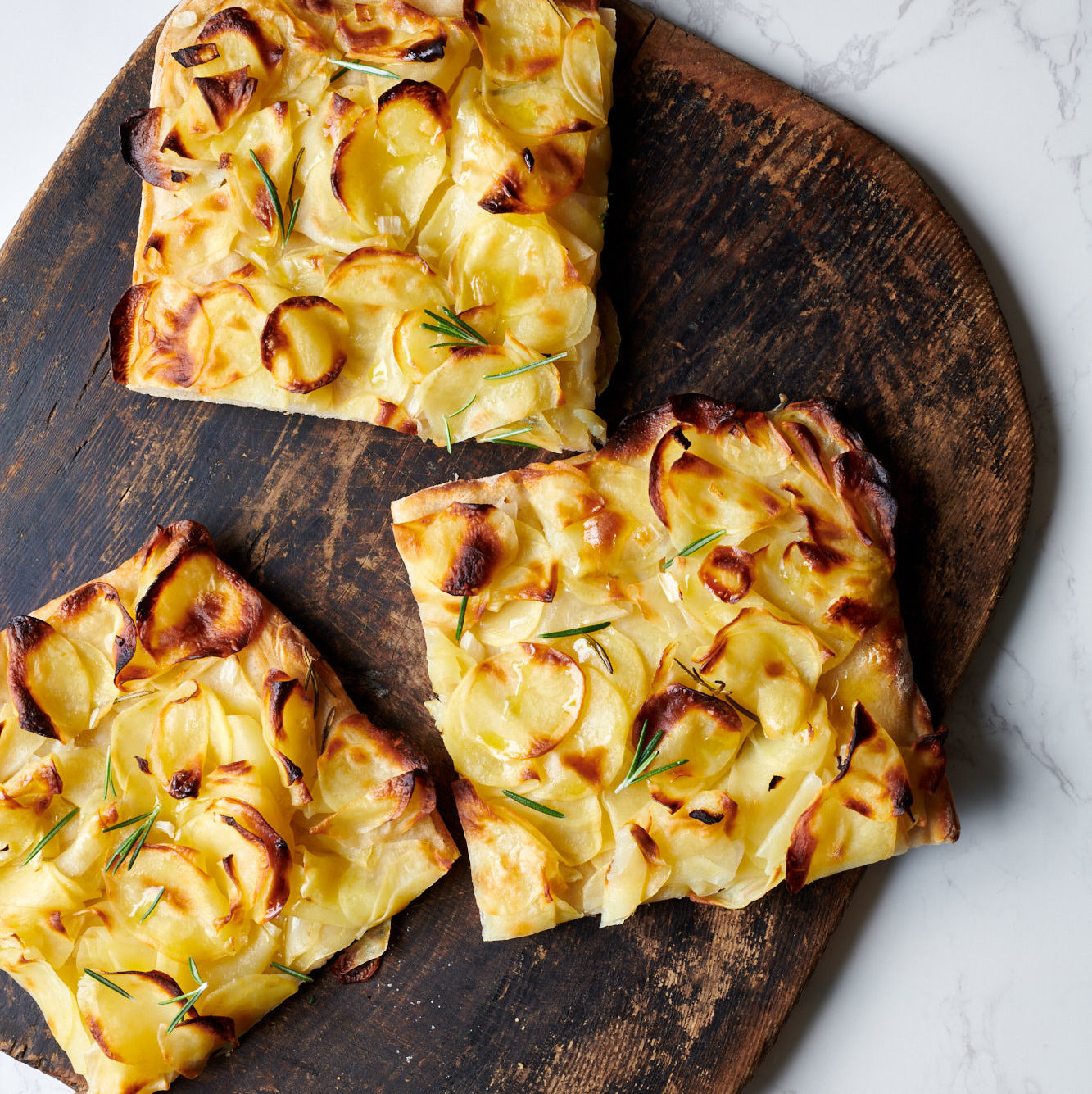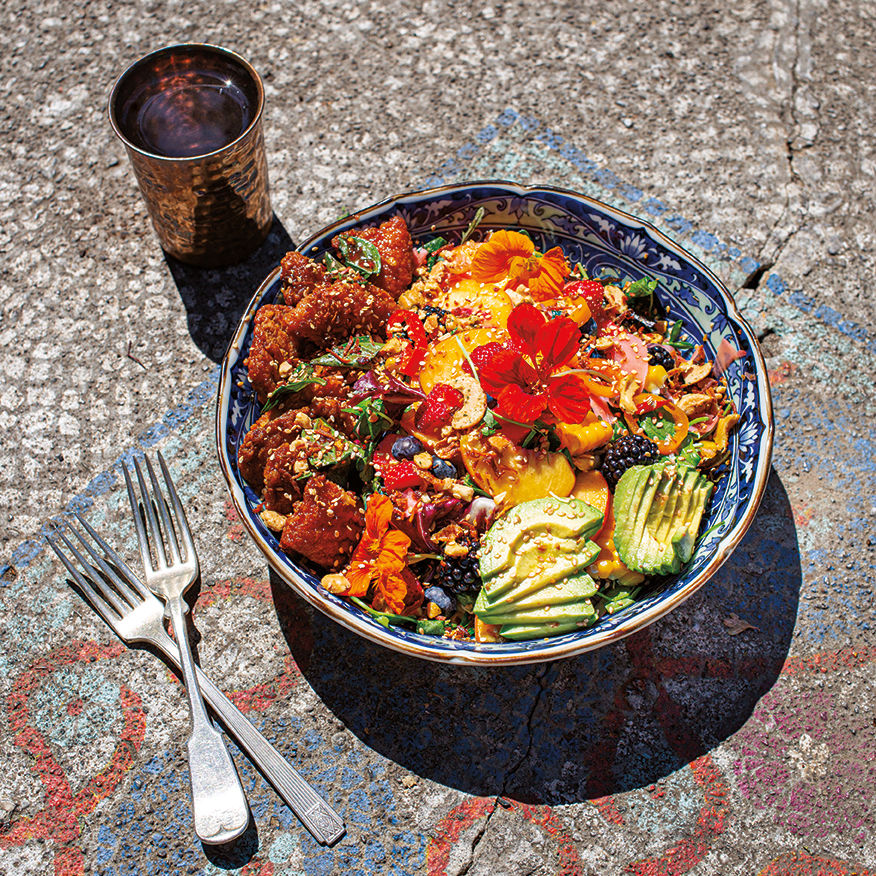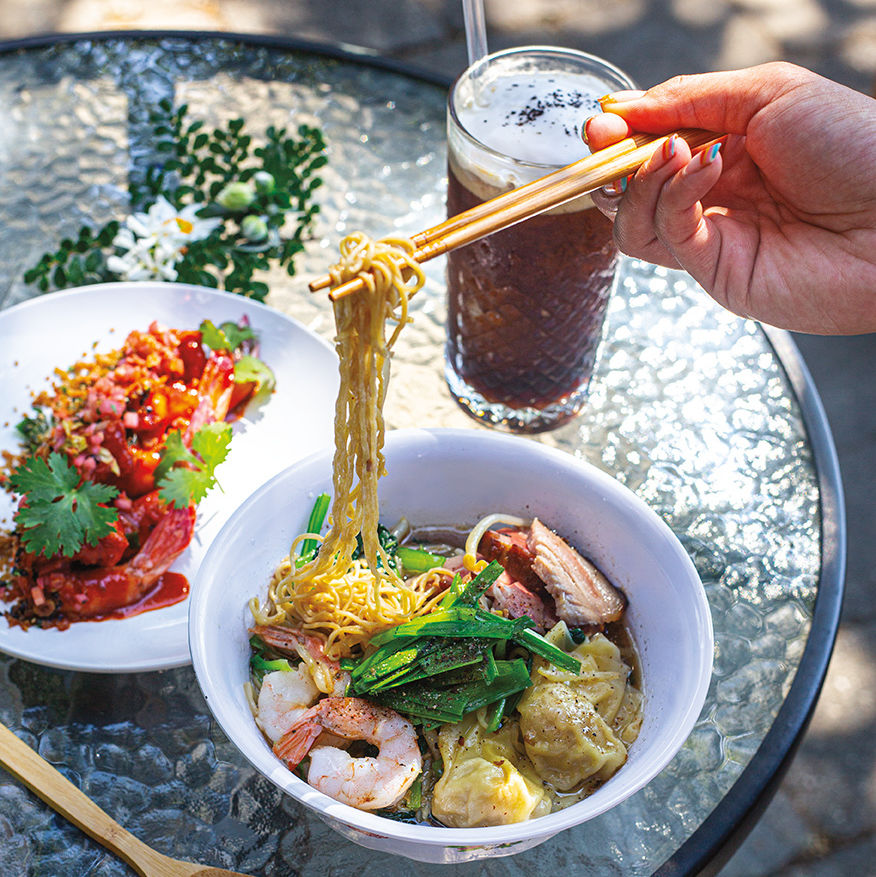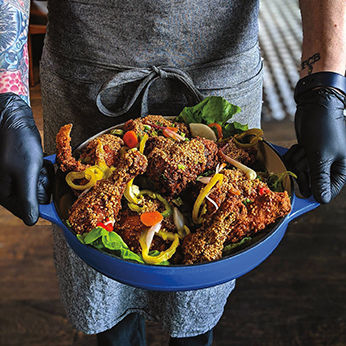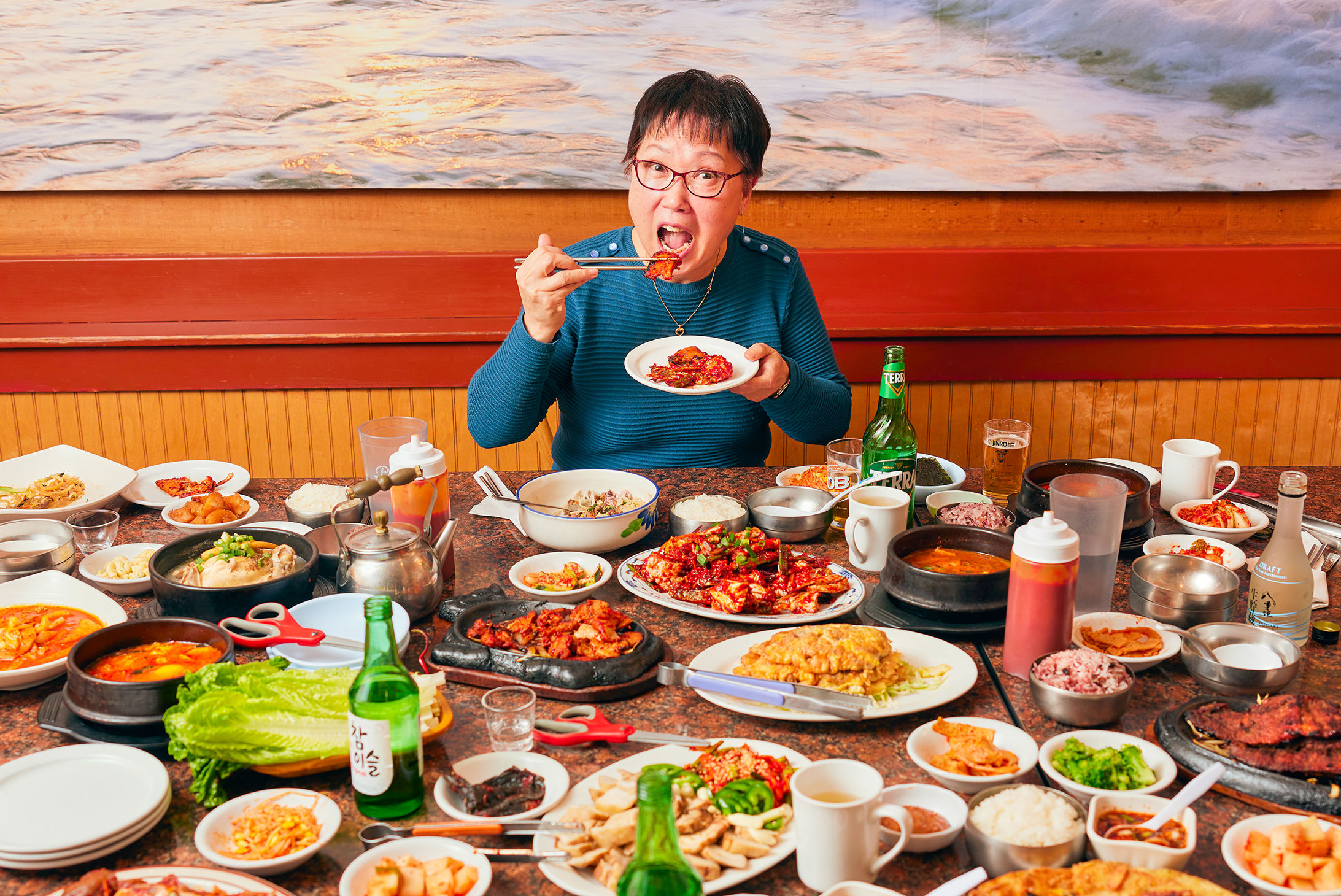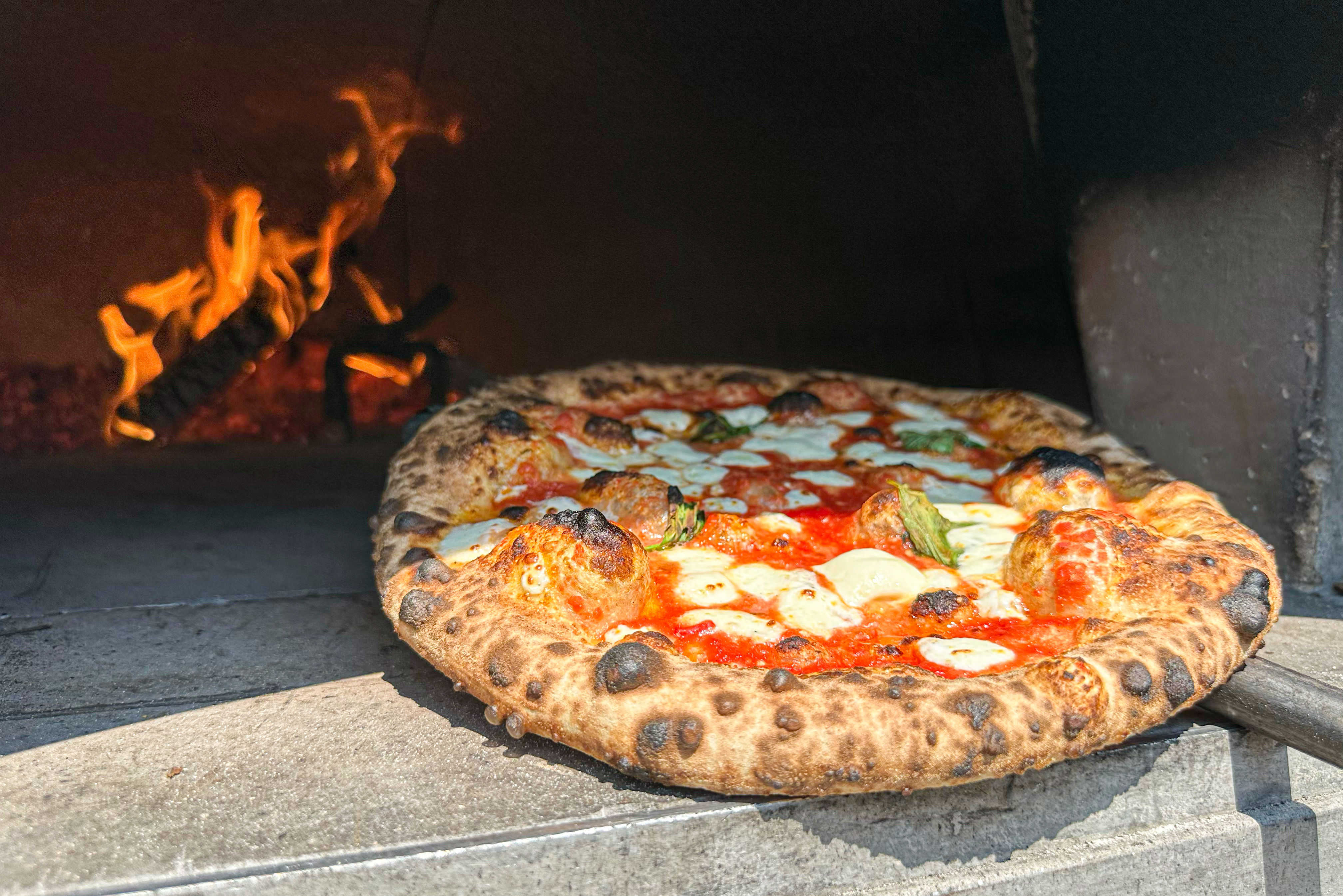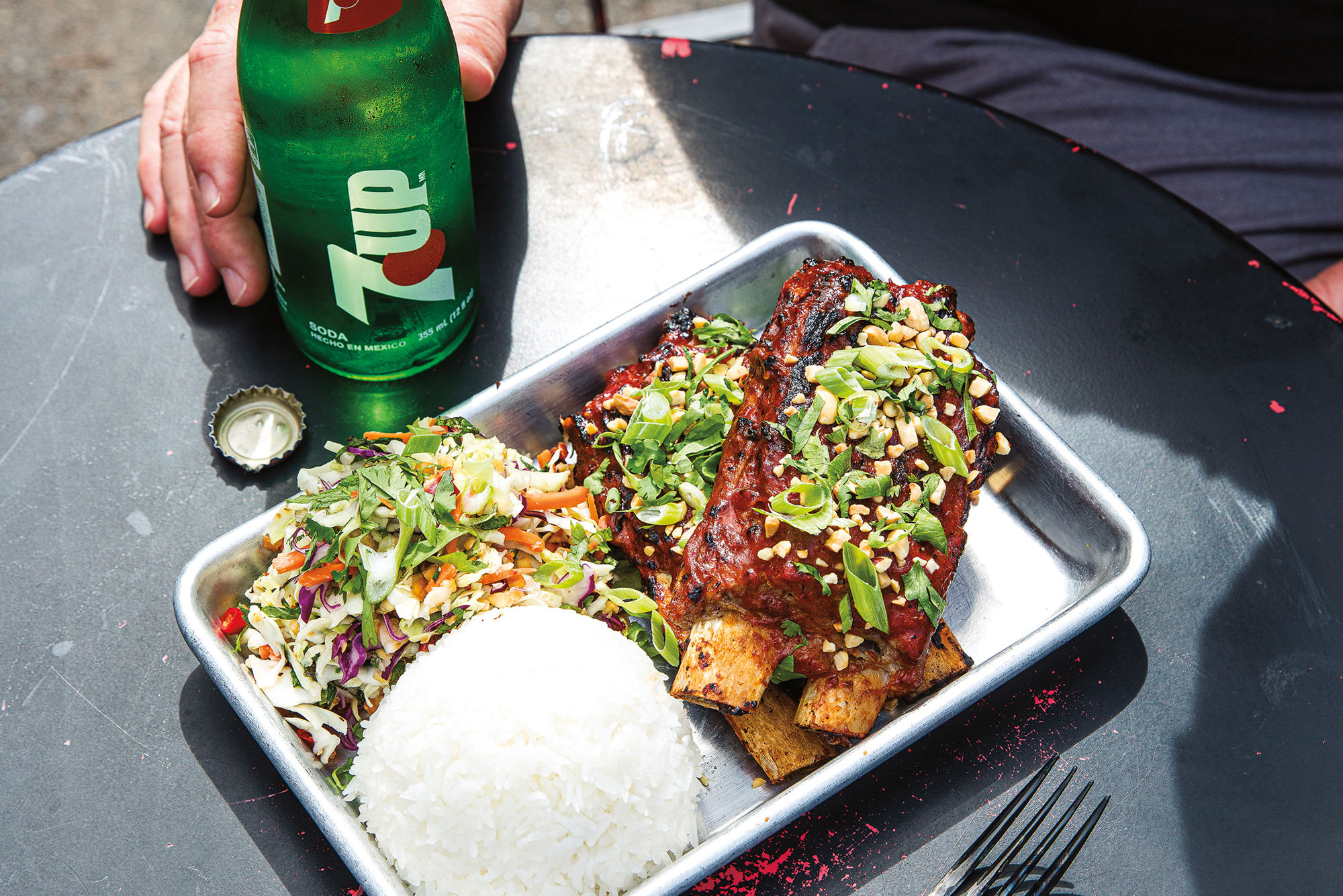
Matta’s Richard Le Remixes Vietnam with His San Jose Roots
No one describes Richard Le’s food better than Richard Le, Instagram freestyler. Consider this rundown on some new charred pork ribs at Matta, which doubles as a food cart and an outpost for his Jungian food odyssey: “Did a flip on our suon nuong, and made a Thai chili bbq sauce to lather them shits up before throwing them over open flame. Topping these with roasted peanuts, cilantro & scallion.... Slanging these out all weekend.”
In the mix, excitedly and determinately, is everything that has shaped him: growing up as a Vietnamese kid in east San Jose, Grandma’s cooking, hip-hop, and the ineluctable claw of iconic American fast food. He calls it “My Truth.”
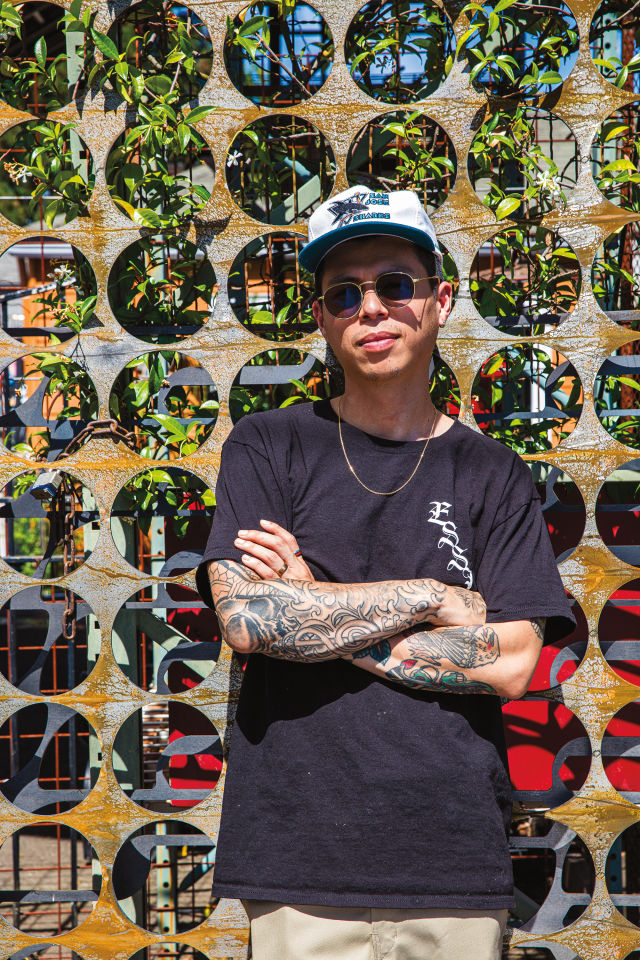
Richard Le has made Matta more than just a great food cart. It’s one 30-year-old’s work-in-progress exploration of what it means to be Vietnamese American.
Image: Stuart Mullenberg
It’s the latest turn in Matta’s search for an authentic identity. What began in late 2018 as straightforward family recipes served with the slogan “Vietnamese soul food” now embraces edgy remixes of Vietnam and America, herbs and umami, crunch and chomp. Thit kho is still here, its braised pork belly still bobbing, classically, in a caramelized broth made creamy with soft boiled eggs. But also, on some days, buckets of crackly-crispy “VFC” fried chicken sided, miraculously, by scallion-topped spuds in a lake of nuoc cham gravy. And then consider Le’s filet-o-fish makeover—hot, golden, crisp-tender, coconut milk–washed cod parked inside the lime-green maw of a handmade pandan milk bun, the whole thing teeming with American cheese, Thai-chile tartar sauce, and herby, pickled slaw. Did Matta just hose Mickey D’s?
Le, who is 30, wasn’t born to cook. He has no Easy-Bake Oven origin stories from a youth divided between two households—strict Southern Vietnamese grandma food at Dad’s; fast-food runs with his single, working-class mom. Both parents had come to the States because of the war, but he had no interest in that world, just friends, b-boy dancing, and “being an American.” But his mom’s death in 2015 changed everything. “It was a wake-up call,” Le recalled when the cart first opened. “Without my mom around, I didn’t know who I was.” So he ventured to Vietnam for the first time, at the encouragement of his Salvadoran-born wife, Sophia. The spiritual call to cooking erupted during dinner at his uncle’s house, outside of Saigon. This wasn’t merely a bone-rattling Proustian memory—Grandma’s stir-fried beef and fries, hard-seared with Thai basil and served over rice. It was a lifeline, a spark plug, a conduit to the food and culture he once rejected. Soon afterward, the couple moved to Portland, land of the food carts, opening Matta in a lively pod with an end-of-world vibe on NE Alberta. Le had found his spiritual mission, vowing to “spend the rest of my life learning to make these dishes, paying homage to my family.”
Matta quickly surged, aided by Sophia’s shockingly light, coconut-glazed pandan doughnuts, an instant Portland classic made to order. Flash forward to February 2020: Le, now confident, was eager to explore and experiment, so he headed back to Vietnam. Then the script flipped, again. In Hue, his mom’s hometown, he had a full identity meltdown ... again. As he tells it:
“I didn’t speak the language. I didn’t connect with anyone. The second day I didn’t know who I was. I came here to learn about mom’s upbringing, how she grew up those first 13 years. But she passed at age 52. Most of that time she lived in America. All the time I’ve been alive, my mom was American. Now I’m sitting here in this hotel, processing it. Damn. I was chasing something not real to her … or to me. I felt really detached. I had built up this whole thing, going to learn so much about myself, figure out my BS, by myself, on a solo mission. But the whole trip made me realize how American I really am. In the beginning I was an adamant voice for Vietnamese food. But growing up, I had as many cheeseburgers as banh mi. Breakfast sandwiches, that’s my shit. I ate as much fast food with my mom as home-cooked meals, and I’m not mad about that.”
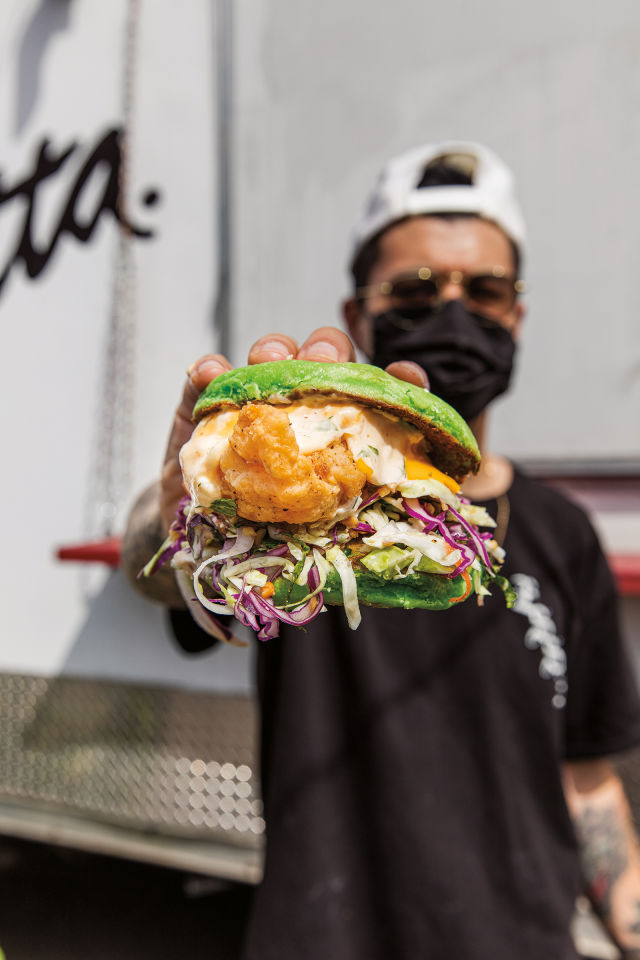
Matta’s amazing, spicy-crunchy “fish sandos” on pandan buns flash childhood memories of McDonald’s through Vietnamese eyes.
Image: Stuart Mullenberg
The point hit home back in Portland when Le tried to re-create a heavenly udon soup with fish cakes, which he ate on the sidewalk in his dad’s hometown, Phan Rang. “Best fucking soup on this trip,” he says. His version? Not so good. In truth, Le had neither the touchstones or the techniques to nail it. In the end, it was more than that. Says Le: “I felt like an appropriator. Not a cultural appropriator, but a memory appropriator. I had no stake in that dish. I didn’t grow up eating it. To suggest otherwise is to create a false narrative. Let someone else tell that story. I want to be true to myself.”
These days, Matta calls itself a “Viet Kieu experience,” which he describes as food from his foreign-born Vietnamese heart. In other words: “Vietnamese food through an American lens and American food through Vietnamese eyes.” That might include ba noi, a tribute to his grandma’s steak and fries, or a destination-worthy smash burger on a pandan bun, its juicy twin patties still glistening from their nuoc cham bath.
Who knows what other changes might come as Matta relocates to the front yard of Metalwood Salvage later this fall, sitting among salvaged art creations and food-cart friends in a future-world, pandemic-era pod—one he’s helping to create. At least that was the plan in late August. Surely, this story has not reached its denouement. Nothing is predictable about Le. But this much is clear: in all its iterations, Matta feels like the best of us. 1533 NE Alberta St, mattapdx.com
